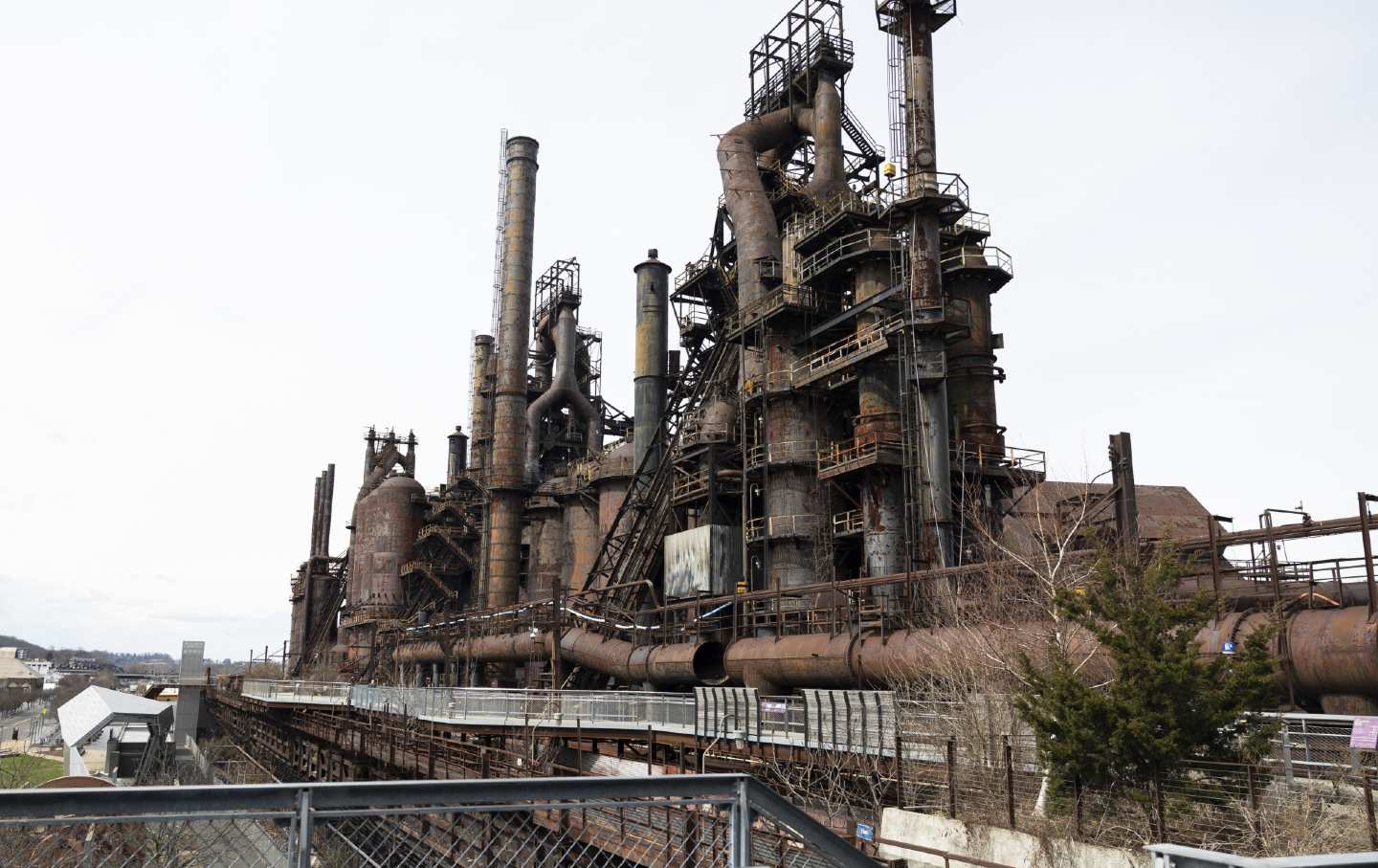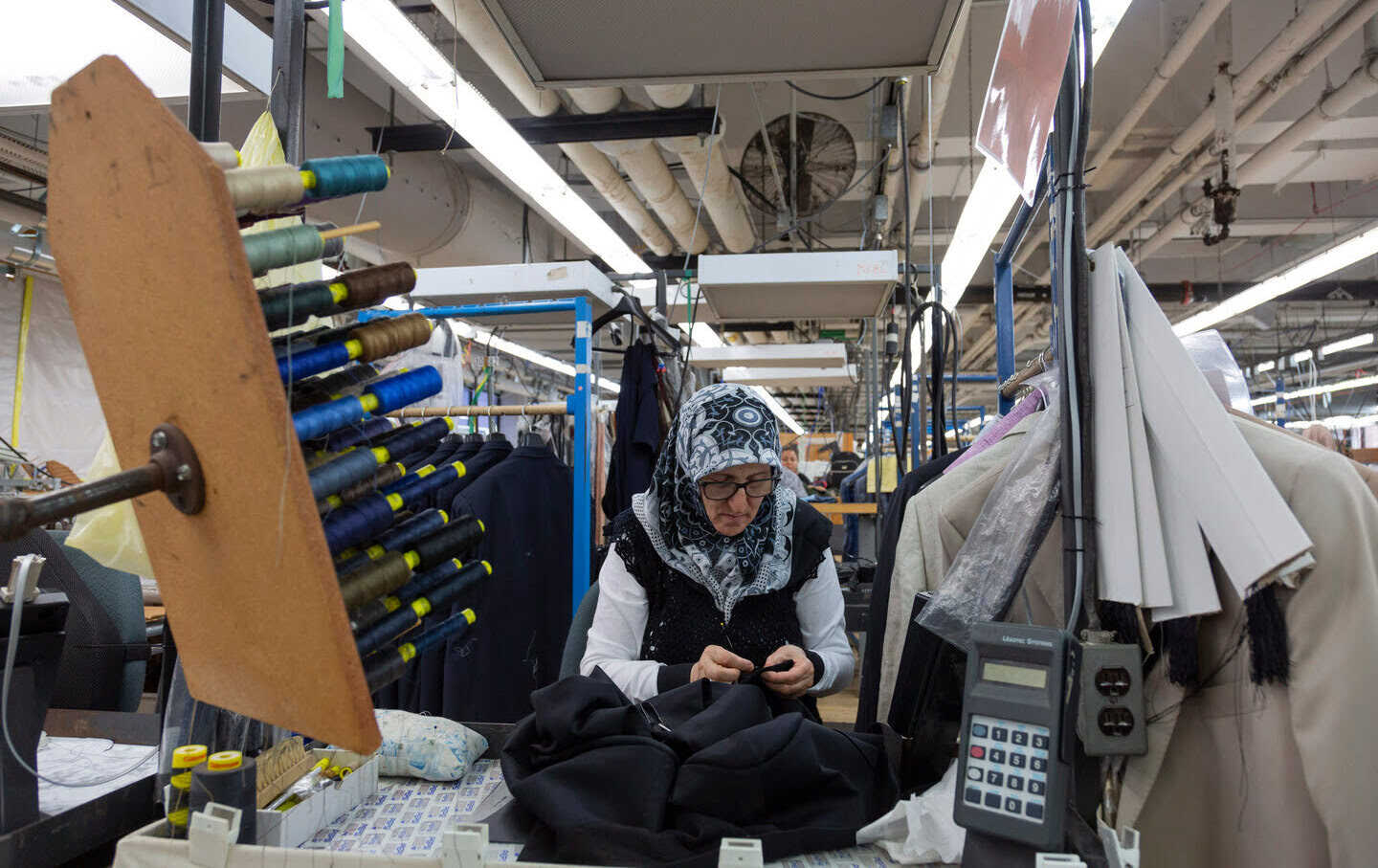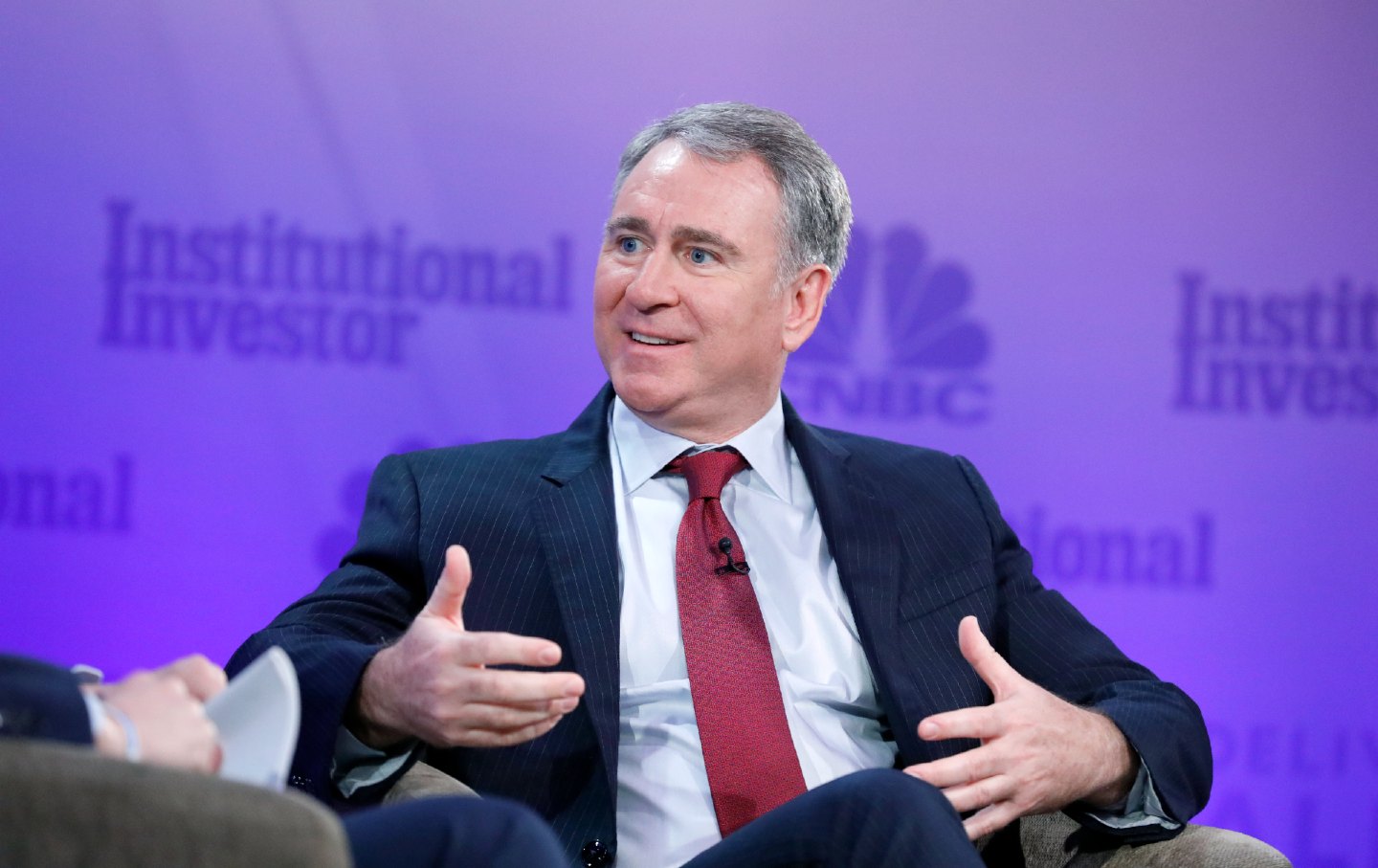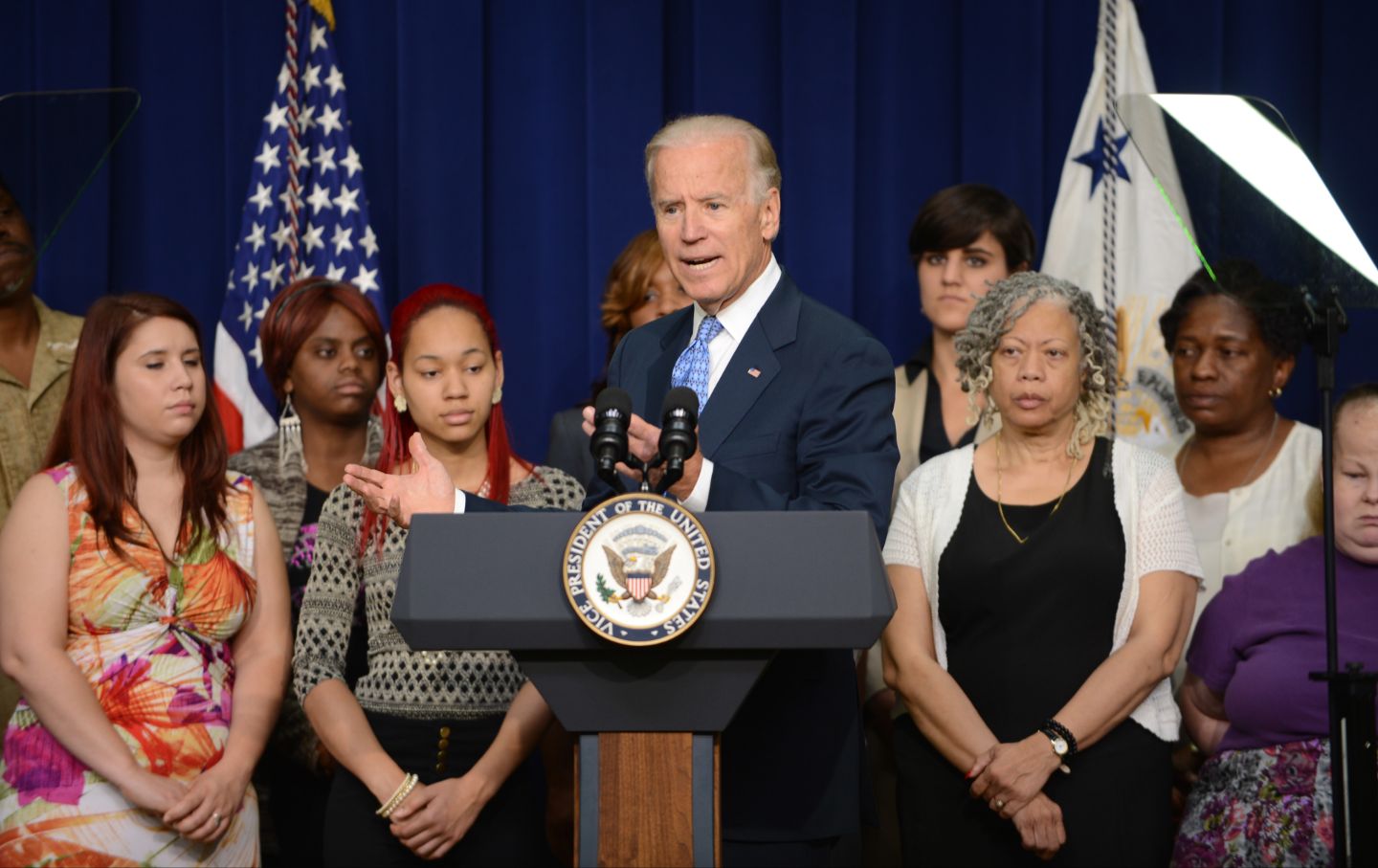Why Is the ACLU Waging Class Warfare?
The assumption that management’s job is to destroy unions is so deeply embedded in our society that even the iconic civil liberties organization is not immune.

Tom Morello speaks about the ACLU at the Minetta Lane Theatre on September 18, 2019, in New York City.
(Lindsay Brice / Getty Images)It is human nature to think of ourselves as good people. Both individuals and the organizations that we build have a powerful thirst to believe that our actions are noble, and to frame the rest of the world in a way that supports this belief. Despite this, the world is full of institutionalized injustices.
How does this happen? How do people with such righteous ideas about themselves wind up supporting the drearily repugnant set of practices that plague our social and economic systems? In America, one of the most common paths from Point A to Point B runs through an unassuming door labeled “union-busting.” If you can get an organization to feel animus toward unions, an entire universe of awful politics can unfold before them. Casual adoption of the attitude that worker organizing is something to oppose is the gateway to political hell.
Right now, for instance, major companies, including Amazon, SpaceX, and Trader Joe’s, are pursuing lawsuits that aim to dismantle the federal government’s entire regime of legal protections for workplace organizing. These suits, which argue on technical grounds that the National Labor Relations Board is unconstitutional, are a quietly radical attack on a system that has been in place since the New Deal era. Rather than the typical union-busting tactics that big companies pursue, corporate America is now rolling the dice on the destruction of the very agency that—though imperfect—has for generations been tasked with keeping labor and capital in some sort of rough legal peace, instead of relegating union battles to the streets, where they used to be waged with guns and hired thugs. These companies don’t just want to defeat their own workers’ union drives. They’re happily trying to throw a century’s worth of progress in the trash.
That’s wild! It’s so irresponsible! But it is not surprising—multibillion-dollar corporations are machines that will always tend to unblinkingly follow a maximally profit-seeking path no matter what reactionary pit it leads to. More interesting is the way that the common view of labor relations as a zero-sum struggle can lure ostensibly progressive organizations down the road to perdition until they wake up one day and find themselves in bed with the right wing. Unions are the greatest test of how genuine a group’s progressive values are. Comforting words about a commitment to equality are easy; ceding power to workers is hard.
This dynamic runs deeper than the common sort of stale and sweaty anti-union rhetoric that workers are subjected to in most organizing drives. (Indeed, the wave of unionization at nonprofits over the past five years or so has been accompanied by so much tortured liberal union-busting that the image of a manager stammering, “We love unions, but they’re not right for us” has become a grim cliché.) The real danger is not just that some workplaces will be rendered temporarily uncomfortable as union organizing puts the bosses’ feel-good value statements to the test—it is that the widely accepted premise that fighting against unions is a manager’s job can quickly undermine an organization’s entire moral framework.
The American Civil Liberties Union, for example, is one of the classic pillars of the liberal nonprofit world. Like many of its peers, it has had its own bouts of anti-union behavior. That behavior reached a shocking new level last September, though, when a dispute with a fired employee led to an ACLU legal filing that argued on technical grounds that Jennifer Abruzzo, the general counsel of the NLRB, was appointed in an unconstitutional manner, and that her authority is therefore illegitimate. Abruzzo’s office has been the greatest source of good, pro-worker labor policy during the Biden administration. As Matt Bruenig points out, if the ACLU’s argument prevailed, it “could potentially invalidate everything the Biden Board has done.” It would, in effect, accomplish much the same goal that Amazon and SpaceX are trying to achieve: wiping away a rare era of pro-union progress by the US government.
The ACLU ended up withdrawing that particular argument, and the dispute with the employee is ongoing. (An ACLU spokesperson said, “The ACLU wholeheartedly supports labor unions, the right to organize and the National Labor Relations Board.”) What is important to think about are not the specifics of this single case but rather the underlying conditions that led to one of America’s most formidable redoubts of liberal values finding itself backing a legal effort to destroy years’ worth of hard-won labor gains.
Even if we give the ACLU—an organization full of lawyers!—the full benefit of the doubt, it is quite revealing that its choice when faced with an employee labor rights complaint was to hire an attorney who himself felt comfortable advancing a legal argument with such sweeping possible consequences—and that the ACLU’s leadership was comfortable taking that argument to court, at least initially. The point here is that it is taken for granted that worker power is a force that must be opposed, and that eroding the structures that strengthen it would naturally be good for any employer.
Assumptions like that would never apply to other values that progressive organizations swear to care about. It is unlikely that you will see left-wing nonprofits asking the courts to abolish the Equal Employment Opportunity Commission or the Environmental Protection Agency. Yet the enmity between capital and labor, between boss and worker, runs so deep that it sweeps away all other political differences. On the question of unions, many allegedly liberal organizations have more in common with Elon Musk than they do with their own employees. It is not “politics” making these strange bedfellows—it is class war. When the ACLU, the Audubon Society, and the New York Times Company all treat their own unions in more or less the same way that Amazon does, it is time to ask ourselves who is on whose side.
Until all of us can own up to this fact, there will always be a divide weakening the left. Whereas the right wing’s institutions are open about the fact that they despise labor power, those on the left tend to lie about it. Their actions tell the story better than their words. The failure to accept that unions are a basic right—which leads employers of all stripes to hire lawyers who specialize in undermining unions in every way possible—is, more plainly, a failure to embrace the equality of humankind.
People who wouldn’t dream of voicing racist or sexist opinions are quite comfortable acting in ways that make clear that they do not consider their employees to be as deserving of respect and fair treatment as they are. This is the pernicious crack in the liberal façade through which all of fascism’s alluring lies can flow in. Once you decide to try to smash your own workers’ union, you have already aligned yourself with the forces responsible for creating most of the other problems that you claim to want to fix.








